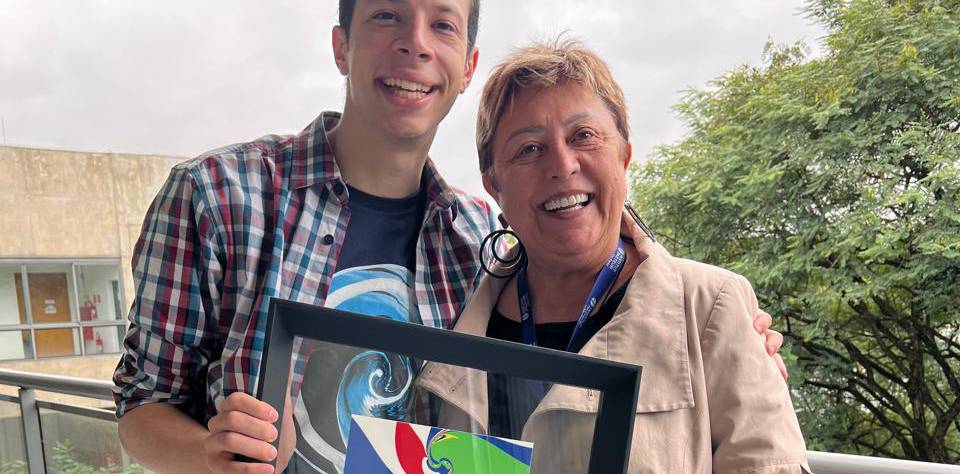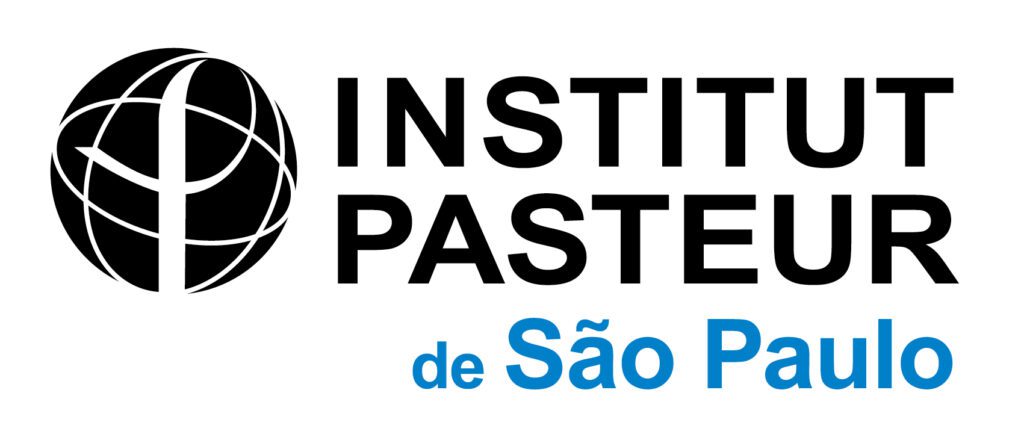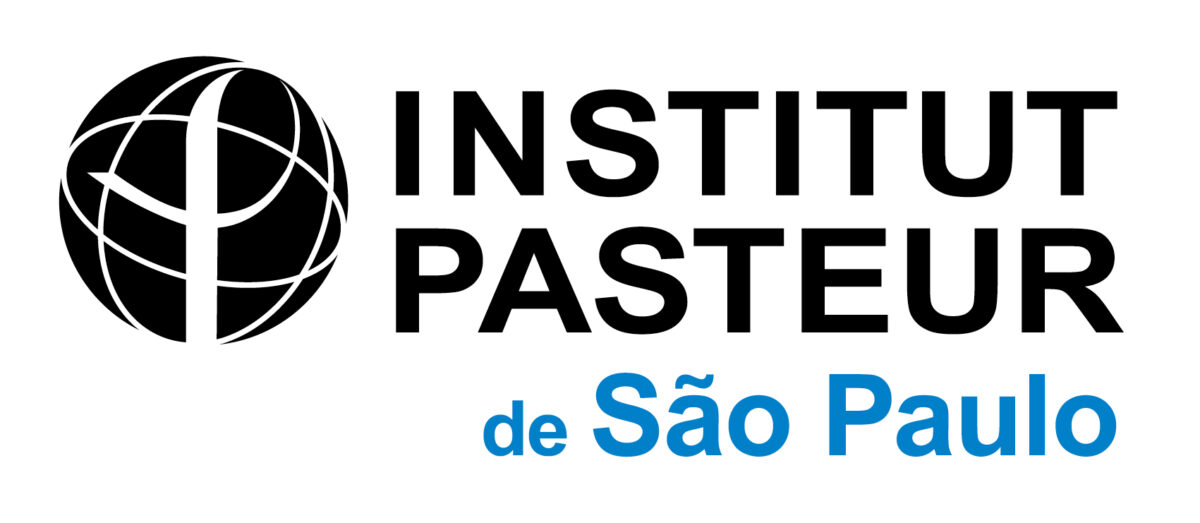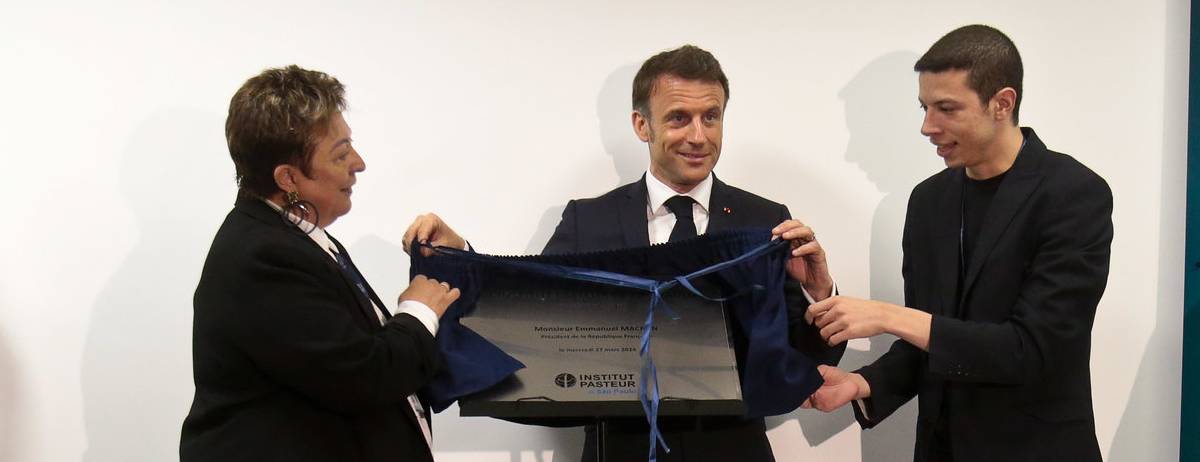Nicolas Brito Sales is also a writer, photographer, therapeutic assistant and lecturer. He met President Emmanuel Macron in March at the inauguration of the Institut Pasteur de São Paulo.
Writer, photographer, therapeutic assistant, lecturer and artist. These are the five professions of Nicolas Brito Sales, a 25-year-old diagnosed with autism who gave one of his works as a gift to French President Emmanuel Macron during the inauguration ceremony of the Pasteur Institute in São Paulo in March.
Entitled Le Brésil et la France se Mélangent (Brazil and France merge, in Portuguese), the work is an abstract painting that symbolizes, using the colors of flags, the union between the two nations. It is based on rotating objects and was ‘printed’ in methacrylate, a technique for fixing images in acrylic.
Upon receiving the gift, Macron publicly expressed his wish for the work to be installed in his own office in Paris and for Nicolas to take part in the “Year of Brazil in France” cross-session in Paris in 2025. This is an initiative of the governments of both countries, with the aim of deepening bilateral relations in the cultural, academic and economic spheres.
Nicolas says he developed his artistic eye through photography, an activity he began practicing in 2016, encouraged by his mother. “She was the one who introduced me to photography and got me to take courses. As I have a pronounced attention deficit, she helped me a lot. She learned how to use image editing programs and cameras, just to teach me,” he says. “I didn’t find painting so difficult, because painting has always been a lot of fun for me,” he adds.
The work given to Macron, according to Nicolas, with rotating objects, harks back to his childhood. Ever since I was little, I’ve been fascinated by objects like these, such as fans and washing machines.”
Autism research – Nicolas was diagnosed as a child with grade 3 autism, which is considered severe. Today, his condition is moderate autism (grade 2). “These grades refer to the level of support the autistic person needs to carry out everyday activities. In psychiatry, autistic people are defined as those with deficits in verbal or non-verbal
communication, socialization and behaviour,” explains Patricia Beltrão Braga, lead researcher at the Institut Pasteur de São Paulo.
At the institute, Braga coordinates the research group on Modeling Nervous System Diseases. Nicolas’ mother, Anita Brito, is a post-doctoral fellow in the group. They investigate in vitro and in models that mimic the human brain the nervous system mechanisms responsible for the onset of the condition and its characteristic behaviors – genetic, environmental and disease factors, for example.
The research group has already identified that autistic people have neuroinflammation in the brain, probably generated in astrocytes, which are cells that support neurons. And that some diseases, such as that caused by the Zika virus, can favor the development of the autistic spectrum. There is still no drug proven to be effective in treating autism.
A story of overcoming – Nicolas stands out for having overcome the limits imposed by autism. “In childhood, he had a lot of difficulty learning, communicating, a lot of food selectivity, as well as stereotypes [repeated and frequent movements]. Today it’s clear to see how much he’s evolved, and he’s evolving more every day since I met him about eight years ago. It’s a surprising evolution, which isn’t very common,” says Braga.
According to her, this overcoming was driven by artistic activities and, above all, by the encouragement of his parents. “What he’s been doing since he was little is cognitive behavioral therapy, which is considered a gold standard approach. For it to work, you need continuous and frequent encouragement from your parents.”
“What he has achieved is the result of his efforts. There are people who think he was born painting and photographing or, because he is autistic, they think he develops certain skills more easily. But we have to make it clear that this idea of the ‘autistic genius’ is just a myth,” says his mother.
His experience has helped many people. Nicolas travels the country giving talks about his story. In 2017, together with his mother, he also launched the book All I Can Be, which details his particular way of seeing the world. Today he also works as a therapeutic assistant in a clinic that treats young people and children with autism.
“Nicolas is a person who inspires us all. We asked him to create a work for President Macron that would represent his overcoming and our efforts in research to better understand the causes of autism,” says Paola Minoprio, executive director of the Institut Pasteur de São Paulo.




